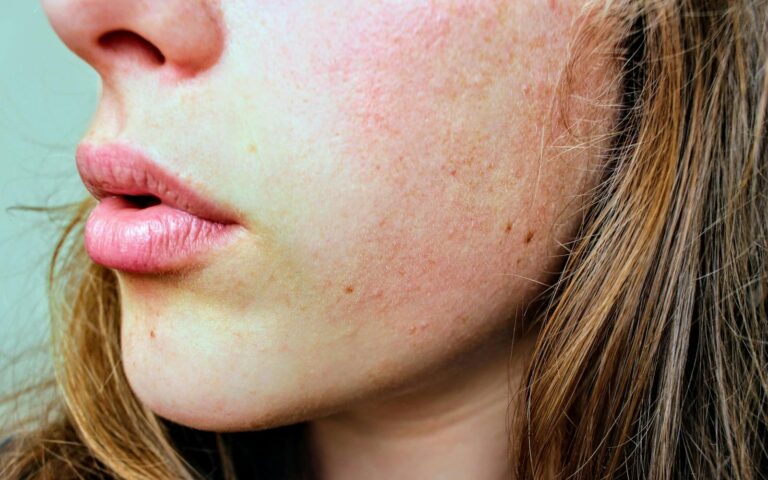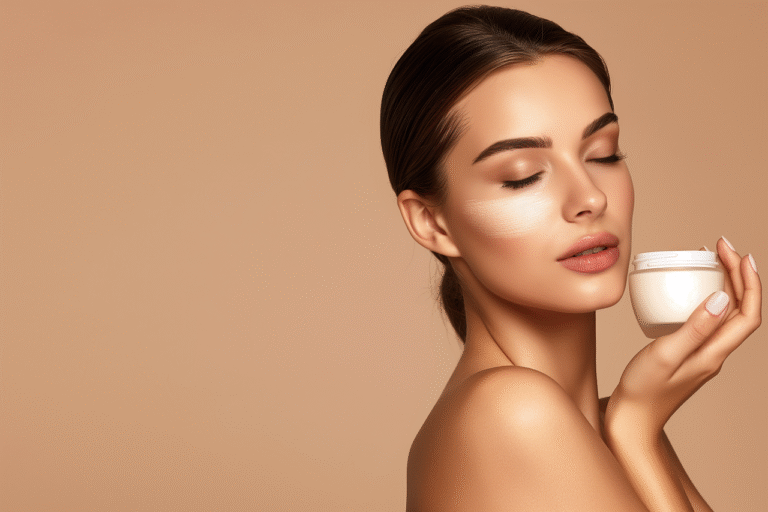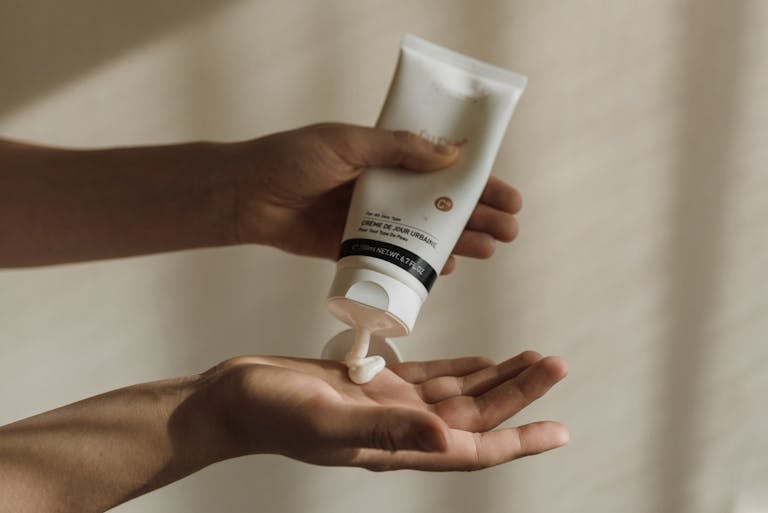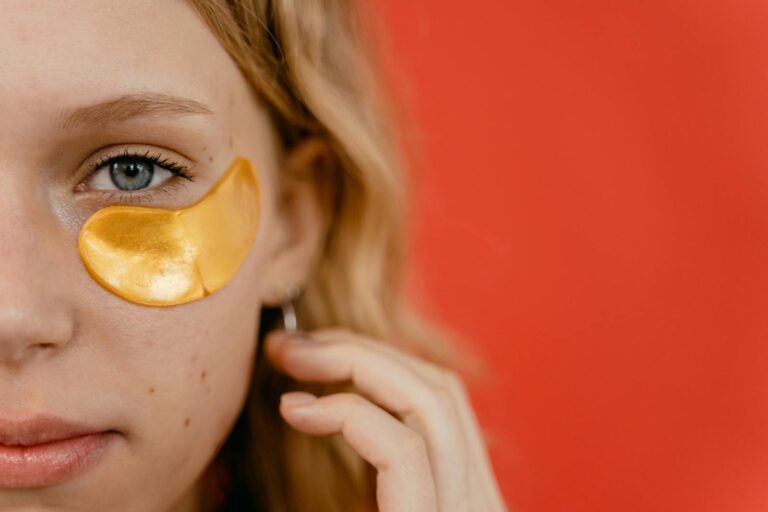Calm your skin and your mind as you explore the various factors that lead to acne breakouts. Understanding the root causes, from hormonal changes to dietary impacts, can empower you to take control of your skin health. You don’t need to rely on harsh chemicals that can do more harm than good. Instead, discover gentle, effective remedies that soothe your skin while promoting a clear complexion. With the right knowledge and approach, you can achieve a radiant glow without compromising your skin’s integrity.
The Biological Mechanics of Acne Formation
The Role of Hormones and Oil Production
Hormones play a pivotal role in the development of acne, particularly during puberty, menstruation, and even pregnancy. Androgens, a group of hormones, increase the size and activity of oil glands in your skin, leading to heightened sebum production. This excess oil can clog your pores and create an environment ripe for breakout. In fact, research has shown that hormonal fluctuations can significantly contribute to the severity and frequency of acne lesions. Evaluating your cycle and understanding when these fluctuations occur can be beneficial in managing breakouts.
Moreover, dietary choices can impact hormone levels too. Foods high in refined carbohydrates, such as white bread and sugary snacks, may exacerbate insulin resistance, leading to hormonal imbalances that further stimulate oil production. By opting for a balanced diet rich in whole foods, antioxidants, and healthy fats, you can help regulate your hormonal response and maintain more balanced oil production, ultimately reducing acne risks.
The Impact of Bacteria and Inflammation
Acne is not merely a result of oil and hormones; the presence of bacteria plays a significant role as well. The skin’s surface hosts a variety of microbes, most notably *Cutibacterium acnes*, a bacterium that thrives in blocked pores. When your pores become clogged with oil and dead skin cells, it creates an ideal breeding ground for these bacteria. As they multiply, they can provoke an immune response, leading to inflammation, redness, and pus-filled pimples on your skin. Studies suggest that inflammation caused by these bacterial colonies can contribute to the formation of deeper acne cysts, making it crucial to maintain a balanced skin microbiome for healthier skin overall.
It’s also critical to recognize how inflammation can exacerbate the other factors that lead to acne. When inflammation occurs, it can signal your body to produce more oil, creating a vicious cycle of breakouts. Incorporating anti-inflammatory foods rich in omega-3 fatty acids, such as salmon or walnuts, into your diet can counteract this inflammatory response. Additionally, using gentle skincare products that support your skin’s natural defenses can significantly reduce the occurrence of these inflammatory outbreaks. Understanding the connection between bacteria, oil production, and inflammation gives you a clearer pathway to manage and calm your acne effectively.
Environmental and Lifestyle Triggers
Your everyday environment and lifestyle choices significantly impact your skin’s health, often leading to acne flare-ups. Pollution, humidity, and exposure to irritating substances can compromise your skin’s barrier, causing inflammation and breakouts. For instance, living in urban areas with high pollution levels may introduce harmful particles that clog your pores, making it imperative to cleanse your skin more thoroughly. Additionally, the quality of the products you use, from skincare to makeup, matters. Opting for non-comedogenic products can be a game changer in keeping your pores clear and preventing unwanted blemishes.
The Influence of Diet and Nutrition
Your diet directly influences your skin’s condition. Foods high in sugar and refined carbohydrates can spike insulin levels, ultimately increasing oil production and inflammation. Incorporating more whole foods, such as fruits, vegetables, and healthy fats, can provide your skin with imperative nutrients for optimal health. For example, foods rich in omega-3 fatty acids—like salmon and walnuts—can help reduce inflammation, while antioxidants from berries support skin repair and overall resilience.
Stress Management and Sleep Quality
Stress has a profound effect on your body, impacting hormones that directly lead to acne development. Chronic stress can trigger your adrenal glands to produce more cortisol, which in turn promotes excess oil production. It’s beneficial to find effective ways to manage your stress—practices like yoga, meditation, or even regular exercise can substantially reduce your stress levels and, consequently, the likelihood of breakout occurrences. Prioritizing sleep quality is equally important; inadequate rest not only hampers your body’s ability to repair itself but can also exacerbate stress levels, creating a cycle that can aggravate your skin.
Prioritizing your mental health and securing enough restorative sleep is non-negotiable for skin health. Studies have shown that individuals who maintain consistent sleep patterns experience fewer skin issues. Aim for at least 7-9 hours of quality sleep each night to optimize your body’s repair processes and maintain hormonal balance. Incorporating a calming bedtime routine, such as reading or practicing mindfulness, can greatly enhance your sleep quality, creating a serene environment that encourages clearer skin.
The Consequences of Harsh Treatments
Long-Term Skin Damage and Sensitivity
Many individuals seeking rapid results from acne treatments often resort to harsh products containing strong chemicals, such as benzoyl peroxide or high concentrations of salicylic acid. While these ingredients can temporarily reduce outbreaks, they can also strip your skin of its natural oils, leading to long-term damage. Consistent use of such aggressive treatments may result in altered skin texture, increased sensitivity, and in some cases, the worsening of acne due to rebound oil production. Your skin can become red, inflamed, and even develop conditions like rosacea, making it harder to manage breakouts effectively.
Additionally, frequent use of these intense treatments can disturb your skin’s microbiome, the community of beneficial bacteria that support a healthy complexion. This imbalance can make your skin more susceptible to infections and further irritations, exacerbating your initial concerns. It’s important to consider that while you may achieve immediate effects, the long-term consequences can be significantly detrimental, leading to a cycle of needing to jump from one harsh product to another without achieving the desired results.
Alternative Solutions for Gentle Care
Shifting focus from aggressive treatments to gentle care can foster healthier skin over time. Natural solutions, such as tea tree oil, have been backed by studies showing their effectiveness against acne with fewer side effects. You might also explore gentle cleansers with ingredients like chamomile or calendula, which soothe inflammation and promote healing. Incorporating a consistent moisturizing routine with non-comedogenic products can help maintain your skin’s hydration levels, preventing it from manifesting excess oil production that leads to breakouts.
Changing your approach to acne management doesn’t mean relinquishing hope for clearer skin. Supplements like zinc and omega-3 fatty acids have shown promise in reducing inflammation and balancing hormones, addressing some root causes of acne from within. Additionally, adopting a diet rich in antioxidants and probiotics can be beneficial for your skin health, providing another layer of support in your skincare regimen. By nurturing your skin with gentle, thoughtful care rather than harsh chemicals, you set the stage for enduring clarity and balance.
Natural Remedies: Harnessing Healing Ingredients
Effective Natural Solutions from Your Kitchen
Your kitchen is a treasure trove of natural ingredients that can help combat acne effectively. Honey, for instance, is renowned for its antibacterial and anti-inflammatory properties; applying it directly to blemishes can speed up healing and reduce redness. Another powerhouse is apple cider vinegar, which balances your skin’s pH and possesses antimicrobial qualities. Mixing equal parts of apple cider vinegar with water creates a potent toner that can keep acne at bay. Additionally, aloe vera is a soothing agent often praised for its calming effects on irritated skin; using it as a gel can also hydrate and provide moisture without the greasy feel that could exacerbate breakouts.
Essential Skincare Practices to Implement
Even the most effective natural remedies can only go so far without a solid skincare routine. Start by cleansing your skin twice daily with a gentle cleanser to remove excess oil, dirt, and impurities that can clog pores. In the morning, follow up with a light moisturizer to keep your skin hydrated and balanced. Exfoliation is another important step, though it should be approached with caution; incorporating a natural exfoliant like sugar or oatmeal once or twice a week can slough away dead skin cells without over-drying your skin. Don’t overlook sunscreen, as protecting your skin from UV damage supports healthier healing and prevents further irritation.
Incorporating a consistent routine focused on gentle yet effective cleaning helps to maintain your skin’s balance. Be mindful of product ingredients; opt for non-comedogenic options that won’t clog your pores. If you find products with harsh chemicals tend to exacerbate your acne, try replacing them with more natural alternatives that are equally effective but gentler on your skin.
Reframing Your Perspective on Acne
Embracing Skin Diversity and Individuality
Your skin tells a unique story, one that’s influenced by your genetics, environment, and lifestyle choices. Embracing this diversity not only cultivates a deeper understanding of your skin but also fosters self-acceptance. You’re navigating a landscape where acne is merely a chapter—one that many others can relate to. In fact, research shows that over 50 million Americans experience acne each year, illustrating that you are far from alone in your journey. By viewing your skin through this lens of individuality, you can start to appreciate its complexities rather than fixate on perceived flaws.
Building Confidence Beyond Appearance
Shifting focus from your skin to the aspects of yourself that build confidence can create powerful transformations. Your abilities, interests, and relationships contribute far more to your sense of self than the temporary presence of acne. Engaging in activities that resonate with your passions—whether it be painting, sports, or volunteer work—can help you enhance your self-esteem and distract from the pressures of public scrutiny. The reality is that people often focus on what they admire in you rather than your skin inconsistencies.
Investing time in personal growth fosters resilience, which in turn reshapes how you perceive challenges, including those posed by acne. Identifying your strengths, setting goals, and celebrating small victories can all reinforce your self-worth. Each accomplishment serves as a building block for more profound confidence, allowing you to see beyond superficial aspects. By cultivating strong connections with loved ones, you can form a support system that uplifts you when insecurities arise, reminding you of your intrinsic value.
Conclusion
Following this discussion, you now have a clearer understanding of the various factors that contribute to acne formation, from hormonal changes and stress to improper skincare routines and dietary choices. Knowing the underlying causes allows you to identify triggers in your own life and make informed adjustments to help manage your skin health. By incorporating gentle alternatives and natural solutions into your daily routine, you can effectively calm acne without resorting to harsh chemicals that could aggravate your skin further.
Furthermore, you should consider the importance of consistency and patience in any skincare regimen. As you make changes to your lifestyle and skincare products, give your skin the time it needs to adapt and heal. With the right approach, a balanced diet, and a soothing routine tailored to your specific skin type, you can achieve a healthier complexion and reduce the frequency and severity of your acne breakouts. Your commitment to these practices will ultimately empower you to take control of your skincare journey.







